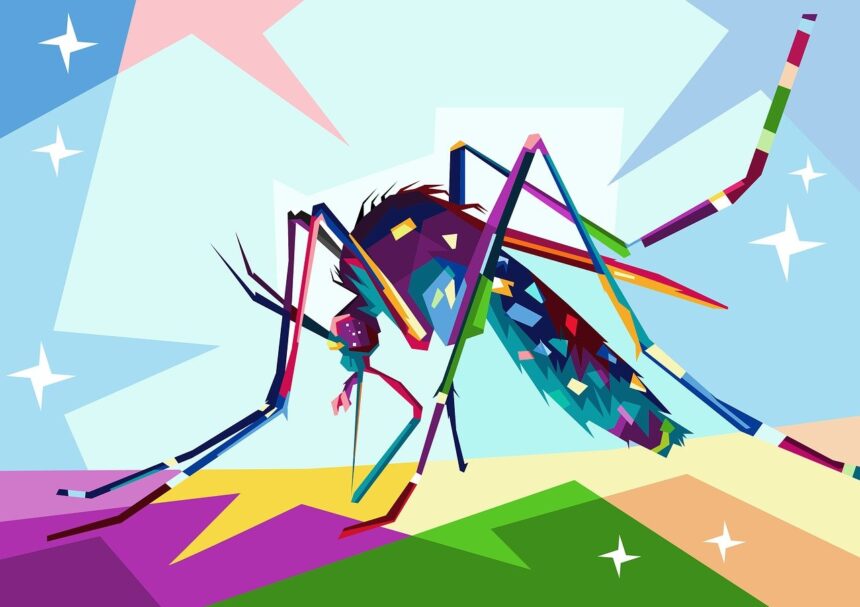Mosquitoes are not just annoying pests. They can also create a number of serious health risks, especially in areas where they are known to carry certain diseases. The EPA reports that they are known to carry malaria, dengue virus, Zika, West Nile virus and many other serious health risks.
The CDC has a scary article on just how prevalent the health risks are. If you want to avoid these health risks, then you are going to need to keep mosquitoes in check. This is especially important if you live near a pond.
Tips to Avoid Health Risks of Mosquitoes When Living Near a Pond
Mosquitoes buzzing around your yard can quickly turn a peaceful outdoor retreat into an itchy nightmare, especially if you have a pond on your property. While ponds can enhance the beauty of your landscape, they also provide ideal breeding grounds for mosquitoes. This can be especially concerning if you are one of the people that is most frequently targeted by mosquitoes.
However, fear not! With the right strategies, you can keep these pesky insects at bay and reclaim your outdoor space. In this guide, we’ll explore the ten best mosquito control methods to help you manage the mosquito population around your pond.
Install a Fountain or Aerator
Installing a fountain or aerator is one of the most effective ways to deter mosquitoes from breeding in your pond. These devices create movement on the water’s surface, disrupting the stagnant conditions mosquitoes love.
By keeping the water in motion, you’ll make it less hospitable for mosquitoes to lay their eggs, thus reducing the overall mosquito population in your yard. We talked about some of the misting systems that can help in this article.
Introduce Mosquito-Eating Fish
Consider adding mosquito-eating fish like goldfish, guppies, or even certain species of minnows to your pond. These fish feed on mosquito larvae, helping to control the mosquito population naturally. Additionally, they add life and vibrancy to your pond ecosystem while serving as a practical solution to your mosquito problem.
Plant Mosquito-Repelling Vegetation
Surrounding your pond with mosquito-repelling plants can create a natural barrier against these pests. Plants like citronella, lavender, marigolds, and lemon balm emit fragrances that mosquitoes find unpleasant, effectively deterring them from congregating near your pond. These plants add beauty and fragrance to your outdoor space, enhancing its overall appeal.
Keep the Pond Clean
Regular maintenance of your pond is essential for keeping mosquito populations in check. Remove any debris, such as fallen leaves or twigs, that could accumulate on the water’s surface and provide breeding grounds for mosquitoes. Additionally, periodically clean out any excess algae or vegetation that could harbor mosquito larvae.
Use Mosquito Dunks or Larvicides
Mosquito dunks contain a naturally occurring bacterium that targets mosquito larvae without harming other aquatic life.
Simply place these dunks in your pond, and they will release a bacteria that specifically targets mosquito larvae, preventing them from maturing into adult mosquitoes. Similarly, larvicides can be applied to standing water around your pond to kill mosquito larvae before they hatch.
Install Screens or Netting
If you have areas around your pond where mosquitoes tend to congregate, such as seating areas or outdoor living spaces, consider installing screens or netting to create a barrier. This physical barrier prevents mosquitoes from accessing these spaces, allowing you to enjoy outdoor activities without the nuisance of buzzing insects.
Optimize Lighting
Mosquitoes are attracted to light, so strategically adjusting your outdoor lighting can help reduce their presence around your pond. Choose yellow or LED lights, which are less attractive to mosquitoes than traditional incandescent bulbs. Additionally, consider installing motion-activated lights to minimize the time the lights are on and reduce mosquito attraction.
Eliminate Standing Water Sources
Eliminating stagnant water sources in your yard is crucial for mosquito control. Check for areas where water may collect, such as clogged gutters, flower pots, or bird baths, and remove or properly manage these sources to deny mosquitoes a place to lay their eggs.
Utilize Mosquito Traps
Mosquito traps can be an effective supplemental tool for controlling mosquito populations around your pond. These traps attract mosquitoes with a combination of CO2, heat, and scent, then trap them inside, where they eventually die. Place traps strategically around your yard, focusing on areas where mosquitoes are most active, to maximize their effectiveness.
Employ Natural Predators
Introducing natural predators of mosquitoes into your yard can help keep their populations in check. Birds such as purple martins and bats feed on mosquitoes, making them valuable allies in the fight against these pests. You can attract these natural predators by providing suitable habitats around your pond, such as birdhouses or bat boxes.
Conclusion
Controlling the mosquito population around your pond can be a manageable task. By implementing these ten strategies, you can effectively manage mosquito populations in your yard and enjoy your outdoor space to the fullest. There are plenty of options, from introducing natural predators to utilizing mosquito traps and maintaining a clean pond. Remember, the key to successful mosquito control is consistency and diligence!










